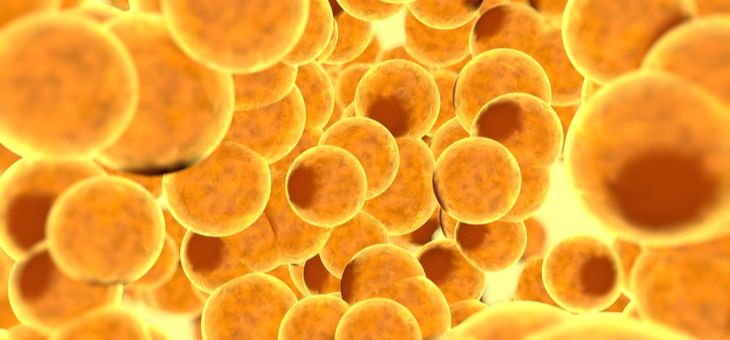Much controversy has surrounded stem cell research, and yet therapies and treatments involving stem cells have the capacity to treat a wide range of medical conditions.
Stem cell therapy could be used to treat physical trauma, degenerative conditions and genetic diseases, and could potentially be developed to repair extensive tissue damage.
However, such therapy has a shady past and is regarded in some quarters as a black sheep of the medical world.
This reputation may be due to ethical issues around past research involving the development and use of human embryos, most notably, embryonic stem cells. But not all stem cell research involves human embryos, and this latest advance in the field involves cells you already have in your body – and may extinguish the need for embryonic stem cells.
Induced multipotent stem cells (iMS) can be made from easily accessible human cells – in this case, fat – and reprogrammed to act as stem cells.
A new animal study using human cells shows that these adaptive stem cells can lie dormant until needed.
It’s a new type of stem cell, one with regenerative abilities, say University of NSW researchers.
The study, published online in Science Advances, shows encouraging results, but more research and tests are needed before any potential translation to human therapies.
“The stem cells we’ve developed can adapt to their surroundings and repair a range of damaged tissues,” says co-senior author Professor John Pimanda.
“To my knowledge, no one has made an adaptive human multipotent stem cell before. This is uncharted territory.”
The researchers exposed human fat cells to a compound mixture that caused them to lose their original identity.
They then injected the cells into mice where, at first, they stayed dormant, but were activated when a mouse had an injury, whereby the cells adapted to their surroundings and transformed into the tissue that needed repairing, be it muscle, bone, cartilage or blood vessels.
“The stem cells acted like chameleons,” says lead author Dr Avani Yeola.
“They followed local cues to blend into the tissue that required healing.”
There are existing technologies to transform cells into stem cells, but they have limitations, such as being limited in the range of tissues they can create and, when directly injected, can lead to tumours.
The new cells, being made from adult tissue, showed no sign of any unwanted tissue growth and they adapted to a range of tissue types.
“These stem cells are unlike any others currently under evaluation in clinical trials,” says Dr Yeola.
“They are made from a patient’s own cells, which reduces the risk of rejection.”
The researchers concede that there is much more research to be done to learn whether the cells are safe and successful for humans, but they are excited, nonetheless.
Should the studies prove successful, these cells could help mend anything from traumatic injuries to heart damage.
“This is one step further in the field of stem cell therapy,” says Dr Yeola.
The results are encouraging, but researchers say translation to human therapies is still a long way away.
“Safety is our first and primary concern,” says Prof. Pimanda.
“Preclinical studies and clinical trials still need to be done, and we need to be sure we can generate these cells in a safe condition.
“Industry partners could bring expertise in production of clinical-grade iMS cells and design and conduct of clinical trials.
“This will help take this research to the next stage.”
Co-senior study author Dr Vashe Chandrakanthan says real-world delivery of this therapy could take up to 15 years.
“Successful medical research that achieves its final goal – that is, translating to routine clinical applicants and treatment – can often take many decades,” says Dr Chandrakanthan.
“There can be barriers, setbacks and failed experiments. It’s the nature of research.
“While these findings are very exciting, I will keep a lid on my excitement until we get this through to patients.”
Are you excited about this medical advance?
If you enjoy our content, don’t keep it to yourself. Share our free eNews with your friends and encourage them to sign up.
Related articles:
https://www.yourlifechoices.com.au/news/older-adults-can-grow-brain-cells
https://www.yourlifechoices.com.au/health/wellbeing/regenerate-your-immune-system
https://www.yourlifechoices.com.au/health/can-scientists-reverse-ageing

